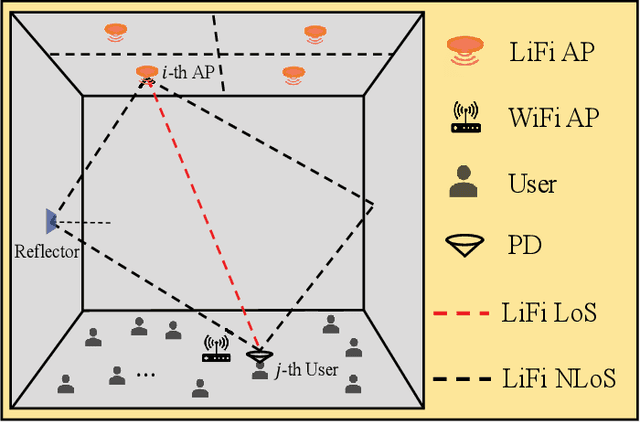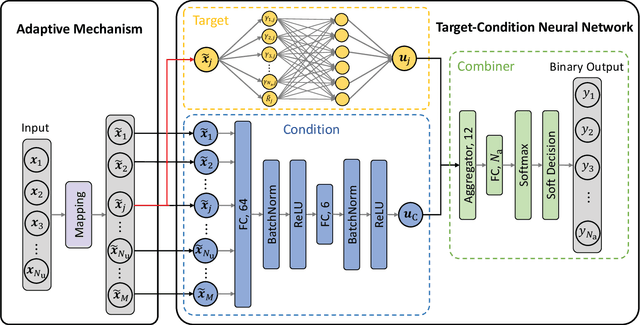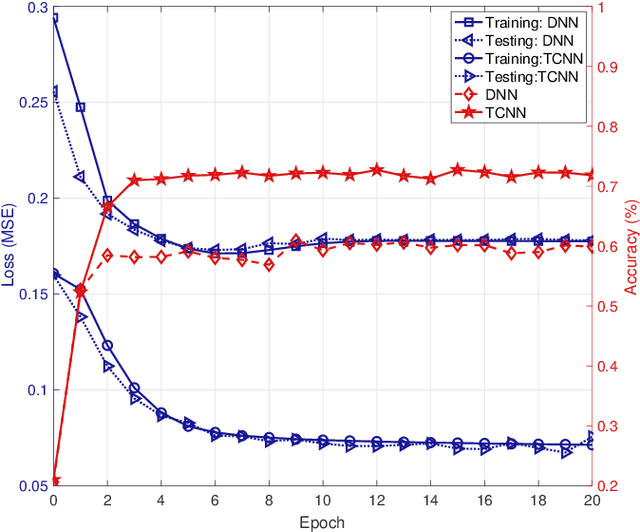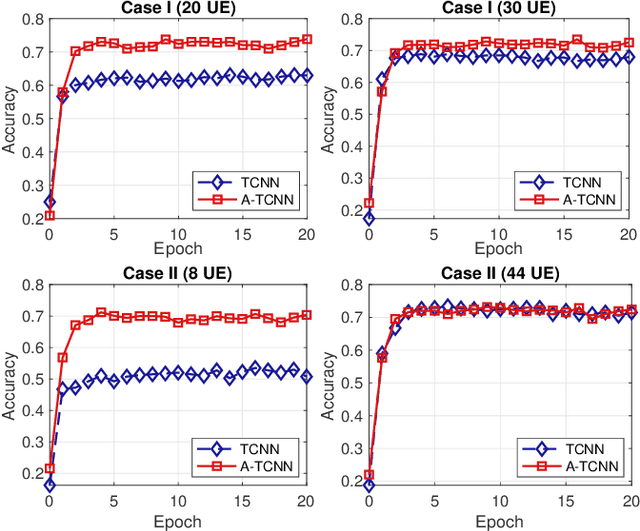Adaptive Target-Condition Neural Network: DNN-Aided Load Balancing for Hybrid LiFi and WiFi Networks
Paper and Code
Aug 09, 2022



Load balancing (LB) is a challenging issue in the hybrid light fidelity (LiFi) and wireless fidelity (WiFi) networks (HLWNets), due to the nature of heterogeneous access points (APs). Machine learning has the potential to provide a complexity-friendly LB solution with near-optimal network performance, at the cost of a training process. The state-of-the-art (SOTA) learning-aided LB methods, however, need retraining when the network environment (especially the number of users) changes, significantly limiting its practicability. In this paper, a novel deep neural network (DNN) structure named adaptive target-condition neural network (A-TCNN) is proposed, which conducts AP selection for one target user upon the condition of other users. Also, an adaptive mechanism is developed to map a smaller number of users to a larger number through splitting their data rate requirements, without affecting the AP selection result for the target user. This enables the proposed method to handle different numbers of users without the need for retraining. Results show that A-TCNN achieves a network throughput very close to that of the testing dataset, with a gap less than 3%. It is also proven that A-TCNN can obtain a network throughput comparable to two SOTA benchmarks, while reducing the runtime by up to three orders of magnitude.
 Add to Chrome
Add to Chrome Add to Firefox
Add to Firefox Add to Edge
Add to Edge